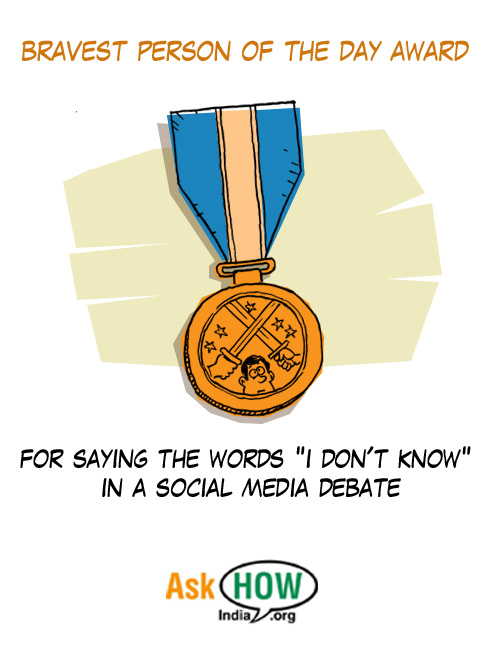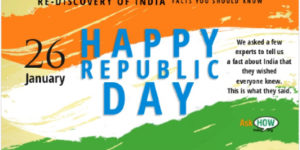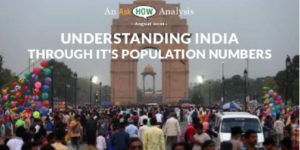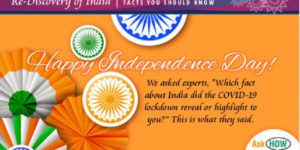3 ways you can contribute to a better discussion!featured
Are you tired of the ‘endless stating and re-stating of own opinions’ aka social media debates?
I have a solution. A 3-point list that would improve any discussion that you participate in.
What qualifies me to give these suggestions?
I am a founder of AskHow India, a group dedicated to improving the quality of public debate in India. In the last three years, I have observed more bad discussions on social and conventional media than is good for my health. That has given me some insights into bad discussions.
More importantly, for more than three decades I have contributed to making discussions worse! I realized how much I was responsible for the problem only when I started observing others!
So here are three tips from an embarrassed poacher turned jungle warden.
1. Say “I don’t know” at least once a day :
Some of the most enriching discussions I have been a part of have been so because someone said the magic words. We all know that there is no way we can know everything there is to know about every topic in the world but in a discussion we pretend otherwise. The first person to say “I don’t know”, allows others to admit their own ignorance and the discussion soon turns from a
verbal slug-fest to a harmonious attempt to increase your own understanding.
If you are like me and you feel that uttering these words is more difficult than saying, “I concede defeat” or even tougher, “I love you” you may set a goal of saying them at least once a day.
Pro tip: Once you have had enough practice saying “I don’t know” you could really challenge yourself and start on, “I was wrong.”
2. Use the back of an envelope (and Google):
Every summer, parts of India go through droughts and we see social media posts exhorting us to save water. Last year, suggestions ranged from playing dry holi to cancelling IPL matches in drought hit states.
I did some quick and rough calculations on the relative importance of each measure being suggested, and was astonished to realize that urban Indians can make very little impact by curtailing their direct use of water but can make significant impact if they understood the concept of ‘embedded water’ in every product they use. Such back of the envelope calculations are very useful in many discussions.
Pro tip: There is a temptation to be very precise in your calculations and assumptions. Avoid it. Many times, rough calculations may show a factor to be of much lower significance than you originally thought and even a 100% error in your answer may not change your conclusions too much. If people ask you to change your assumptions, just do it. Don’t argue.
3. Beware of Confirmation Bias:
Wikipedia defines Confirmation bias as “…the tendency to search for, interpret, favor, and recall information in a way that confirms one’s preexisting beliefs or hypotheses, while giving disproportionately less consideration to alternative possibilities.” In other words, facts rarely change our minds.
Unfortunately, this bias like most other biases is much easier to spot in others than in yourself. One way of discovering it in yourself is to record what would make you change your mind about an issue. If after a while, you go back and read these jottings, you would be surprised how stronger evidence than you initially thought has come up and you have still not changed your mind.
Pro tip: Don’t make your jottings public. Reservoirs of confirmation bias can be embarrassingly large.
These are my top three tips. What are yours? Post techniques that you have used to make discussions more productive in the comments section below.
On behalf of AskHow India, I wish everyone a 2017 filled with productive discussions!
(Yogesh Upadhyaya is a founder of AskHow India. Blogs are personal views)



